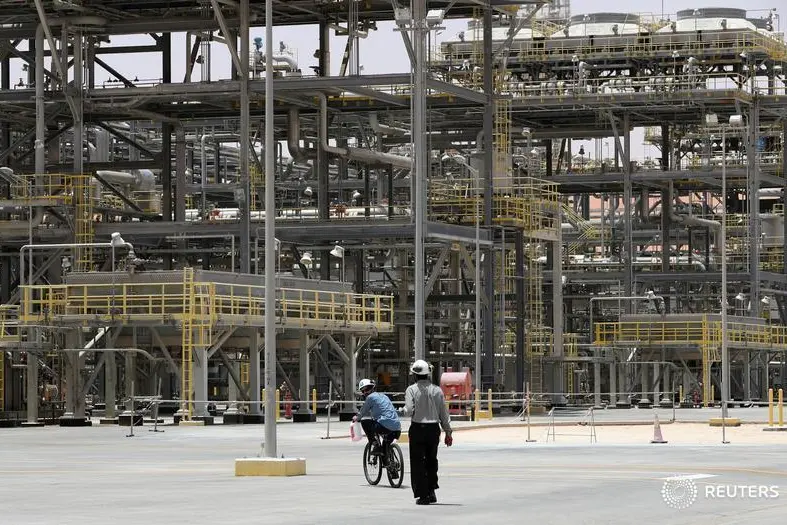PHOTO
Saudi Arabia is likely to rein in production of oil if prices drop considerably lower than $70 per barrel, the Institute of International Finance’s Middle East and North Africa (MENA) chief economist, Garbis Iradian.
Speaking at the Institute’s MENA Financial Summit in Abu Dhabi on Wednesday, Iradian said the institute is forecasting an average crude oil price of $67 per barrel for 2019, which is around $4 below its previous forecast. However, he added that the current oil price, which stood at $72.56 for Brent crude at 08.21 GMT on Thursday, would be closer to $60 per barrel had the United States not re-introduced sanctions against Iran.
“One major factor that pushed oil prices to over $70 is when Trump said we are going to impose US sanctions on Iran. What happened since then is Iran lost almost 40 percent of its crude oil in volume terms, because European countries have reduced their imports from Iran....Korea and Japan completely stopped,” he said during a panel debate on the outlook for trade and investment in the region.
He argued that in terms of supply, “there is enough oil coming to the market”, with US producers adding 1.5 million barrels per day, and Saudi Arabia increasing supply since April by 700,000 barrels per day.
A paper published by the IIF into the oil market this week also stated that the US was mediating in two regional disputes which, if resolved, could add a further 800,000 barrels per day. A resumption of exports in Kirkuk could add 300,000 barrels, it said, whereas if production could re-start in a neutral zone between Kuwait and Saudi Arabia, this could add a further 500,000 barrels.
“If it comes on stream, that could put downward pressure on prices,” Iradian said.
A prolonged trade dispute between the US and China is also likely to put pressure on prices, Iradian said.
“China accounts for almost one-third of the incremental demand for oil. Out of the 1.3 million barrels per day every year that global demand increases, almost 500,000 barrels comes from China. So if the Chinese economy slows from 6.5 to 6 percent that could have a major impact on demand for oil,” Iradian said.
He said that if oil demand falls too low, causing a significant drop in oil prices, Saudi Arabia, which is the world’s biggest producer, may not be willing to support any production increases.
Following a recent announcement by the Saudi finance ministry that it intends to increase spending next year to more than 1.1 trillion Saudi riyals ($295 billion), Iradian said the “fiscal breakeven price of oil which balances their budget is well above $80”.
“So I don’t think Saudi will increase further its production of oil if oil prices drop below $70,” he added.
No quick fix
Speaking on the same panel, Andrea Durkin, a former US government trade negotiator who now runs US-based consultancy firm Sparkplug, said that she does not envisage a speedy conclusion to the trade dispute.
Alongside cases lodged against the U.S. to the World Trade Organisation by several countries whose steel and aluminium exports have had tariffs imposed on them, Durkin said that US has “developed a taxonomy of grievances in the area of technology and intellectual property theft” against China, including complaints about technology transfer secured through Chinese companies’ use of mergers and acquisitions, of Chinese students in US universities and of through Chinese companies used by US tech firms through their supply chains.
“I think that’s why we’re going to have the tariffs for quite a while because... there isn’t a quick fix for it.”
A meeting of the Organization of Petroleum Exporting Countries is due to take place this weekend in Abu Dhabi, with two sources telling Reuters that production cuts next year could not be ruled out.
In comments sent to the media on Thursday, Jameel Ahmad, head of currency strategy and market research for forex trading broker FXTM, said that the impact of the sanctions on Iranian oil exports imposed this week was “priced into the financial markets many months ago”.
However, he added that since then concerns about the global economy had weighed “heavily” on economic confidence, adding: “It would not be a major surprise if OPEC and its allies are considering another round of production cuts to combat a potential decline in demand for oil”.
“When you factor into consideration that demand for commodities like oil relies strongly on economic momentum, an expected slowdown in global growth does provide reason to open up the conversation on whether there is a requirement to discuss potential production cuts from OPEC.”
(Reporting by Michael Fahy; Editing by Shane McGinley)
(michael.fahy@refinitiv.com)
Our Standards: The Thomson Reuters Trust Principles
Disclaimer: This article is provided for informational purposes only. The content does not provide tax, legal or investment advice or opinion regarding the suitability, value or profitability of any particular security, portfolio or investment strategy. Read our full disclaimer policy here.
© ZAWYA 2018





















